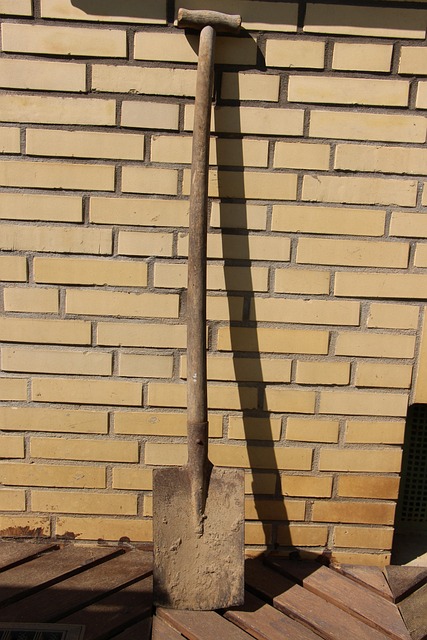Foundation problems caused by environmental factors and structural issues are common in homes, indicated by signs like cracks, uneven floors, and stuck doors. A Foundation Inspection is vital for early detection, preventing costly repairs, and ensuring home stability. Regular inspections uncover subtle damage, settlement, or instability. Understanding warranty coverage provides long-term peace of mind, with options for material and labor costs, emergency services, and regular maintenance visits. Selecting a reputable foundation repair company, licensed and bonded, is key after conducting your own inspection. Warranty-backed repairs follow advanced assessment, manufacturer guidelines, and post-repair maintenance routines to ensure long-term stability.
“Uncovering stable foundations is paramount for any homeowner. This comprehensive guide delves into the intricate world of full warranty foundation repair, equipping you with vital knowledge. We explore common foundation issues, from settlement cracks to uneven floors, and their potential structural implications. Understanding these problems is the first step towards effective prevention. This article emphasizes the critical role of a thorough foundation inspection in identifying risks early on. Learn about various warranty coverage options and discover essential tips for choosing reputable foundation repair experts.”
Understanding Foundation Problems: Common Issues and Their Impact

Foundation problems are a common concern for many homeowners, often stemming from various environmental factors and structural issues. A thorough understanding of these potential challenges is key to ensuring prompt and effective repair. Common foundation issues include cracks in the foundation walls, uneven floors, doors or windows that stick, and visible gaps around doorframes or windowsills. These problems may be caused by shifting soil, poor initial construction, or settlement over time.
A foundation inspection is an essential step in identifying these issues. Professional inspectors use advanced techniques to assess the stability and integrity of your home’s foundation. By addressing foundation problems early, homeowners can prevent more severe damage, costly repairs, and even structural instability. Prompt action ensures that your home remains a safe and stable living space for years to come.
The Role of a Foundation Inspection: Uncovering Potential Risks

A comprehensive foundation inspection is an invaluable step in ensuring your home’s structural integrity and identifying potential risks early on. This process involves a detailed evaluation of the foundation, including its materials, construction methods, and overall condition. During an inspection, trained professionals utilize advanced tools and techniques to uncover subtle signs of damage, settlement, or instability that might go unnoticed during routine checks.
By conducting thorough foundation inspections, experts can pinpoint various issues such as cracks in the foundation walls, heave or settling, water intrusion, or even poor soil conditions. These factors can contribute to long-term structural problems if left unaddressed. Early detection through regular inspections allows for proactive measures, preventing minor issues from escalating into costly and complex repairs.
Types of Warranty Coverage for Foundation Repairs

When it comes to foundation repair, understanding your warranty coverage is essential for ensuring long-term peace of mind. Different types of warranty programs are designed to cater to various needs and budgets, offering comprehensive protection for structural issues discovered during a thorough foundation inspection. These warranties typically cover materials and labor costs associated with repairs, including underpinning, piecing, and releveling.
For homeowners concerned about the longevity of their home’s foundation, extended warranty options provide added security. These plans often include regular maintenance visits and 24/7 emergency repair services, allowing for swift action if any foundation problems arise. By choosing a plan that aligns with your specific needs, you can have confidence in knowing that your investment is protected against unforeseen structural challenges revealed during foundation inspections.
Selecting a Reliable Foundation Repair Company: Tips for Homeowners

When faced with foundation issues, selecting a reliable repair company is crucial for ensuring your home’s stability and long-term safety. Start by asking for recommendations from trusted sources like friends or neighbors who have had similar repairs done. Online reviews can also provide valuable insights into a company’s reputation and work quality.
Next, conduct a thorough foundation inspection yourself. Look for signs of cracks, unevenness in floors or walls, and any visible movement in the structure. Verify if the company offers this service as part of their evaluation process. Additionally, ensure the contractor is licensed, bonded, and insured to safeguard against potential risks during the repair work.
Step-by-Step Process of Full Warranty Foundation Repair

Foundation repair, especially under warranty, involves a meticulous process to ensure structural integrity and longevity. Here’s a simplified breakdown:
1. Foundation Inspection: The first step is a comprehensive inspection by a licensed professional who assesses the type and extent of damage. This includes cracks, settlement, or any other abnormalities using advanced tools and techniques. During this phase, they’ll also consider factors like soil conditions, climate, and building age to tailor the repair method accordingly.
2. Warranty Verification: Once the damage is identified, the technician will verify if it falls under the active warranty coverage. Different warranties have specific criteria for what’s covered, so a clear understanding of these terms is crucial. If eligible, the repair process can begin, ensuring that all work complies with manufacturer guidelines and standards. This may include replacing damaged parts, adjusting structural elements, or using specialized products to stabilize the foundation.
Post-Repair Maintenance: Ensuring Long-Term Stability and Protection

After a foundation repair, proper maintenance is key to ensuring long-term stability and protection. Regular inspection is vital; it helps identify any new cracks or signs of damage early on. A comprehensive foundation inspection should be conducted every 6 months to assess the condition of the structure and detect potential issues before they become costly repairs.
This maintenance routine includes checking for water seepage, settling cracks, and any movement in the foundation walls. Addressing these problems promptly can prevent further deterioration and extend the lifespan of your repair work. Additionally, maintaining proper drainage around the property is crucial to diverting water away from the foundation, reducing the risk of future damage.
